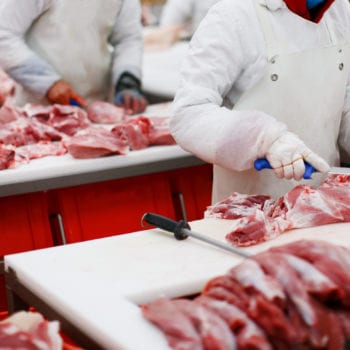Calls for urgent action to tackle Covid-19 risk for meat plant employees

Meat Industry Ireland says that "to date, over 116,000 tests have been conducted with a very low positivity rate of 0.8%”
23 February 2021
A migrant rights group has called for a cross-governmental committee to urgently address the risks to meat plant workers posed by the Covid-19 pandemic.
“It’s so disappointing there has been little to no movement despite huge evidence on widespread problems,” said Edel McGinley. director of the Migrant Rights Centre Ireland.
Up to 60% of meat plant workers are from abroad, with many coming from Brazil.
According to the Migrant Rights Centre, issues include a lack of sick pay, expectations for a consistent production-line speed even when many are absent with Covid-19, and a lack of appropriate PPE in some plants.
On Friday, the National Public Health Emergency Team (Nphet) reported three cases of the Brazilian variant of Covid-19, also known as P1, were identified in the Republic. These were associated with recent travel from Brazil, yet a spokeswoman for the Department of Health said the individuals who tested positive “went into self-isolation as appropriate” when they arrived in the country.
Trade union Siptu has also spoken out on this issue. Greg Ennis, Siptu’s manufacturing division organiser, said in The Irish Times, that between 60% and 70% of meat plant workers were migrants, with a “significant number” of those being from Brazil and South Africa.
The trade union claimed that about 20% of meat plant workers have contracted Covid-19 since the onset of the pandemic, with three outbreaks in recent weeks.
However, a spokesman for Meat Industry Ireland (MII), which represents meat processors, said its members are “extremely vigilant” of the risk posed by Covid-19.
“Robust protocols and mitigation measures remain in force,” the spokesman said. “Ongoing regular PCR testing of employees across the meat processing sector continue to take place. To date, over 116,000 tests have been conducted with a very low positivity rate of 0.8%.”



 Print
Print






Fans 0
Followers